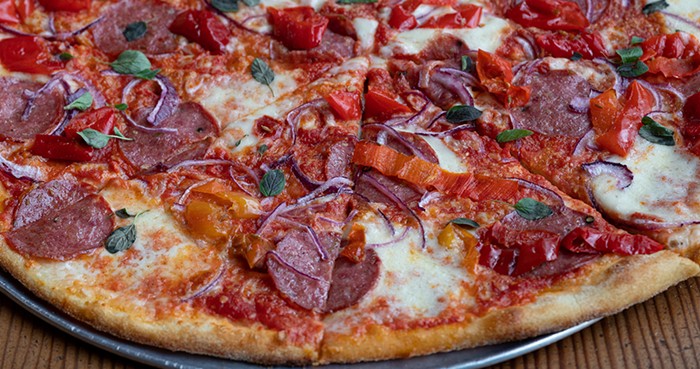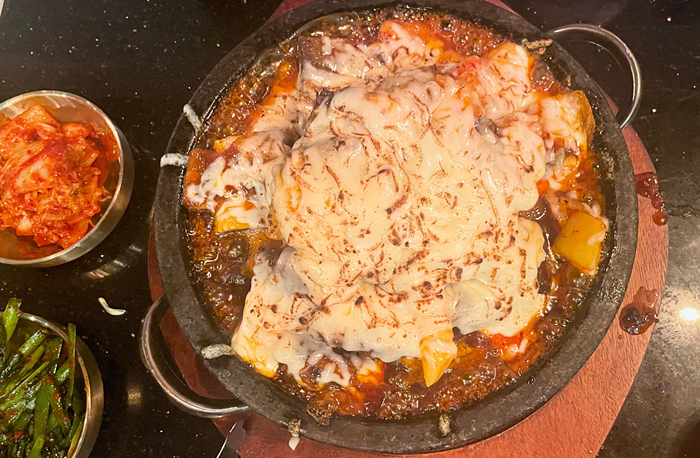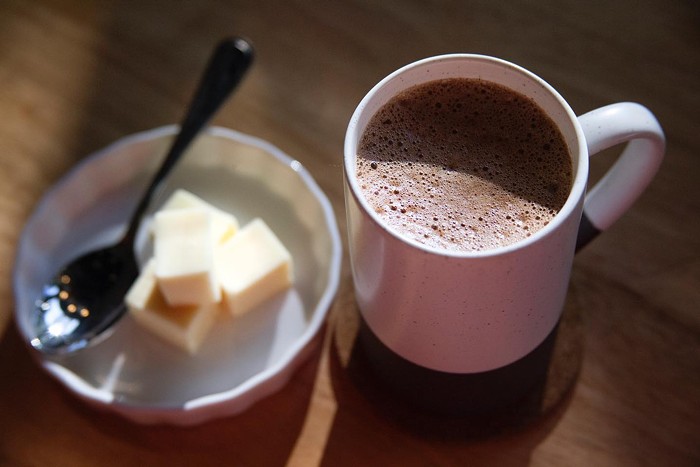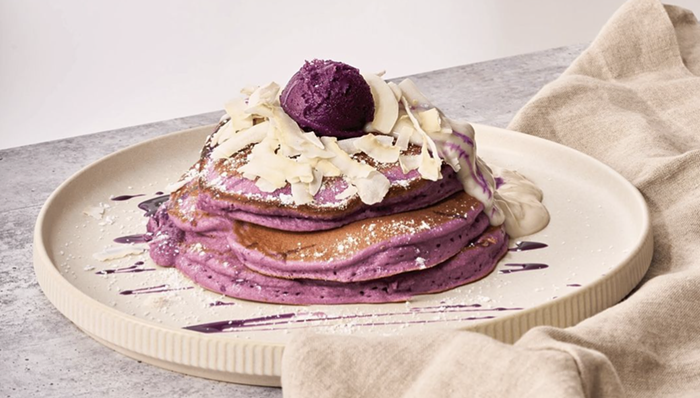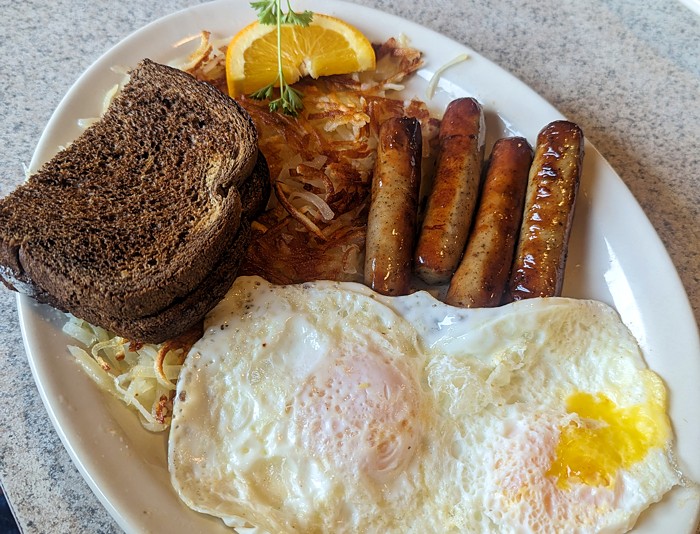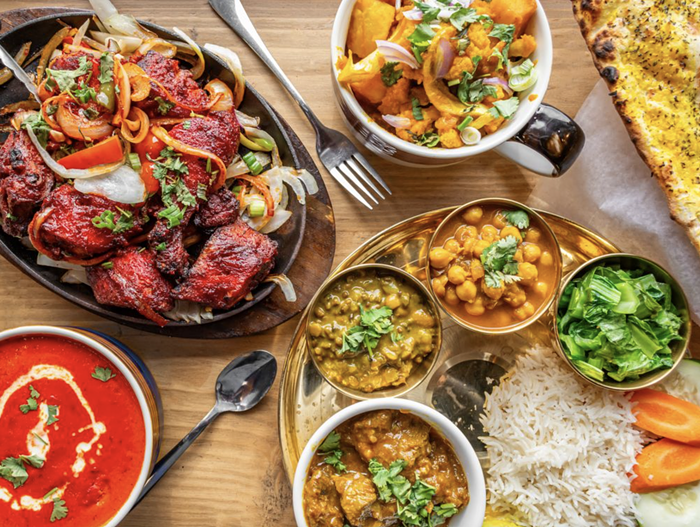According to its mission statement (I love a restaurant with a mission statement), Cafe Piccolo strives to "meet the standards of the slow-food philosophy." Founded by Carlo Petrini in the 1980s, the anti-fast-food slow-food movement took a stand against the industrialization and standardization of contemporary food, advocating for the preservation of strong flavors, championing the use of local, organic, seasonal ingredients, and encouraging an active fight against corporately sanitized food. At its best, the slow-food movement teaches people to experience food as the sociosensual edutainment it should be, and its ideas and ideals are crucial to saving food in the coming century.
If slow food has a problem, it's marketing. Realistically, in the popular imagination, slow equals boring and fast equals interesting. Think Butoh dance versus tap dance. Think horse-drawn Amish buggy versus space shuttle.
I think of this because Cafe Piccolo, an almost brand-new family-owned Italian restaurant in Maple Leaf, is definitely Butoh food. It's got all the spice and pizzazz, all the glitz and glamour, of an Amish bonnet. Despite the organic and seasonal ingredients, despite the handmade pastas and fresh-baked breads, this is not food that tap dances across the palate.
The squash soup, served with an amaretto crème fraîche ($5.95 for a cup, $8.95 a bowl), was bland and uninteresting. None of the very few ingredients were strong enough to carry the dish, and my dining partner and I hunted through the bowl of stock-heavy soup for a strength of flavor we never found.
The grilled sugar pumpkin ($5.95) was undercooked, giving too much snap to each bite and keeping the sugars in the gourd from really caramelizing. And the supporting flavors of sage, brown butter, and Parmesan were so sparingly applied as to be almost undetectable. The ideas were all in place—seasonal ingredients, organically grown, prepared simply—but somehow the whole actually ended up tasting like less than the sum of its parts.
Piccolo makes its own fresh pastas by hand, an unfortunately rare practice in Seattle and one that they perform beautifully. Their noodles (cut as fettuccine or spaghetti or stuffed as ravioli) are light and bright tasting, and cooked nicely al dente. And I appreciate the build-it-yourself style of the pasta section of the menu. You choose a noodle type, a sauce (nine choices, from pesto to Bordelaise), and a meat and create your own final dish. But the fettuccine with pesto and grilled chicken ($14.95) was a complete disappointment. The pesto wasn't emulsified at all; it was more of a healthy drizzle of olive oil with some chopped basil and raw pine nuts tossed in. As such, it never came together as a sauce, but wandered around the noodles, ingredients still in search of a recipe. The chicken breast was tender, juicy, and perfectly cooked, but tasteless, barely spiced and somehow missing any of the char a grill should impart.
The chicken parmigiana ($14.95) was similarly uninteresting, served over some polenta with vegetables that were, apparently, completely forgettable—as I type, I am looking at a copy of Piccolo's menu, which swears the dish was served with seasonal vegetables, but for the life of me I cannot remember them.
I admit to being amazed at the consistency of the blandness in the dishes we tried. Eating the meal, I commented to my guest, was like chewing water, dish after dish. All night I searched for a way to like Piccolo. The staff is charming and helpful, the culinary goals are noble, and the neighborhood needs a good simple restaurant. But from the ubiquitous IKEA furniture (KAUSTBY) and glassware (SVEPA) to the wash of undifferentiated lighting and identical idiotic carnations on every table, Piccolo seems determined to strip all character from itself.
Buying cheap IKEA glassware is a silly thing to pick on a new restaurant for, but I don't hold the cheapness of the glassware against Piccolo. It's simply indicative, or representative, of the lack of style in both the restaurant's interior and its menu. The tables could have been set more creatively, and more cheaply, with a couple of trips to Value Village. The dishes could have been designed and prepared more interestingly, and more in line with the slow-food philosophy, with a less subtle hand in spicing and a more personal approach to ingredients. The simplicity, the subtleness, and the plainness of Piccolo's menu seem to fight against the passion, seduction, and vibrancy that slow food preaches.
